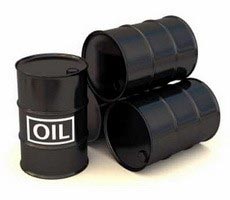 Kenya is finally set to join the league of oil producing nations after British explorer Tullow Oil Plc said it had surpassed the threshold needed for commercial exploitation of reserves in Turkana.
Kenya is finally set to join the league of oil producing nations after British explorer Tullow Oil Plc said it had surpassed the threshold needed for commercial exploitation of reserves in Turkana.
The announcement contained in Tullow’s results for the half year to June 30 were underscored by the company striking additional deposits in Etuko-1 well on Tuesday.
“Resources discovered to date are of a scale that the partnership will initiate discussions with the Government of Kenya and other relevant stakeholders to consider development options,” Tullow said. Africa Oil is Tullow’s partner in the Turkana exploration and appraissal phase.
The developments to be considered include facilities such as pipelines and refineries but Tullow said the oil could initially be moved by rail or road.
Tullow now estimates that the Turkana exploration basin has in excess of 300 million barrels of oil (mmbo) after it discovered up to 50 metres of fresh reserves in Etuko-1, making the country’s total found reserves commercially viable.
The explorers had in early July found 40 metres of oil reserves in Etuko-1 following initial drilling.
“Following success at Etuko-1, potential mean resources are expected to be well in excess of 300 mmbo (million barrels), exceeding the threshold for development,” Tullow said in a statement on Wednesday.
(Read: Tullow strikes new oil deposits in Turkana)
Etuko-1 falls within the same basin as Twiga South-1 and Ngamia-1 wells in which huge reserves of oil were discovered recently. Tests on Twiga-1 and Ngamia-1 have confirmed the two wells alone have a potential of 250 mmbo, Tullow said.
With exploration going on in other parts of the country, Kenya’s profile as an oil producer is likely to rise even further. Focus has now shifted to the options of developing the key infrastructure required to exploit and move the reserves to markets.
“These discussions include consideration of a ‘start-up phase’ oil production system with potential to deliver oil export via road or rail in advance of a full-scale pipeline development,” said Tullow.
The company said it agreed with the government in February to carry on with exploration work in the Turkana basin as well as other parts of the country while evaluating the commercial potential of reserves found.
“This agreement allows a multiple field approach to development of the resources while permitting the continued focus on exploration to increase the resource base while concurrently appraising discoveries,” it said.
The Energy and Petroleum ministry could not be reached for comment as we went to press. However, sources said the government would explore options of a pipeline and rail shipment.
Last year the government said it planned to build a pipeline linking the port of Lamu to the oil fields in Turkana, with an extension to South Sudan and Moyale under the Lamu Port and Southern Sudan Ethiopia Transport Corridor (Lapsset) project.